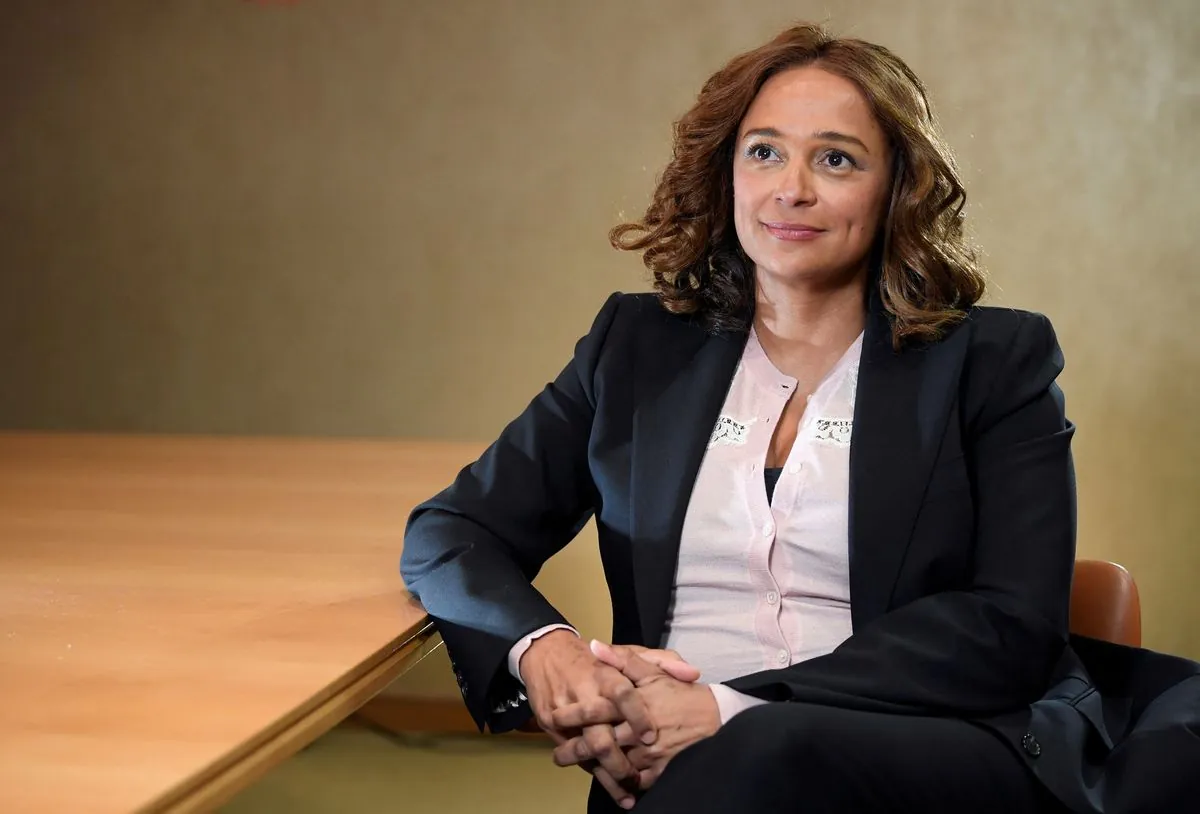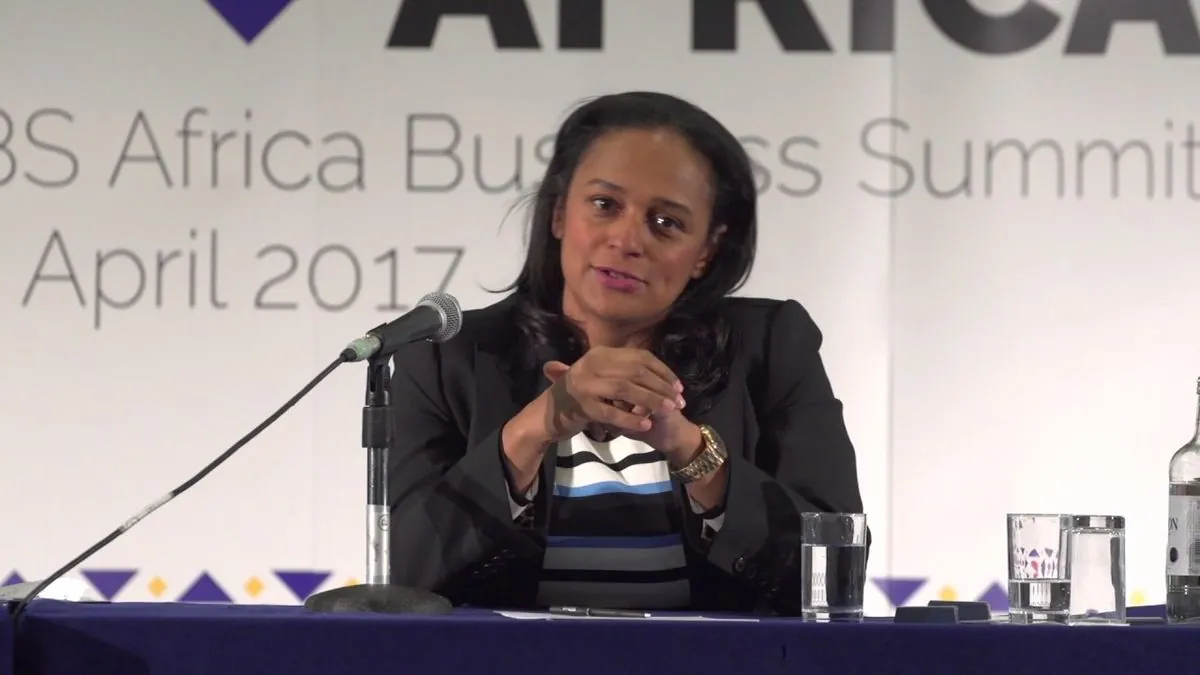Isabel dos Santos Loses Appeal in $778 Million Asset Freeze Case
Angolan billionaire Isabel dos Santos fails to overturn asset freeze order in London High Court. The case involves unpaid loans to a company she controls, amidst ongoing corruption allegations.

In a significant legal development, Isabel dos Santos, the Angolan billionaire and daughter of former President José Eduardo dos Santos, has failed in her attempt to overturn a substantial asset freeze order. The Court of Appeal in London upheld a decision to freeze up to £580 million ($778 million) of her assets as part of an ongoing lawsuit.
The case centers around Unitel, Angola's largest mobile phone operator, which is suing dos Santos over unpaid loans. These loans, totaling approximately £300 million, were made in 2012 and 2013 to Unitel International Holdings (UIH), a Dutch company owned and controlled by dos Santos. The funds were intended to finance UIH's acquisition of shares in various telecommunications companies.
Isabel dos Santos, once hailed as Africa's first female billionaire by Forbes in 2013, has faced a series of legal challenges and corruption allegations in recent years. Born in Baku, Azerbaijan SSR in 1973, she studied electrical engineering at King's College London before building a vast business empire spanning telecommunications, media, retail, and energy sectors.

The current legal battle is part of a broader controversy surrounding dos Santos. In 2020, the "Luanda Leaks" investigation, involving over 715,000 documents, exposed alleged corruption schemes linked to her business activities. Despite these accusations, dos Santos vehemently denies any wrongdoing, claiming to be the victim of a "campaign of oppression" by the Angolan government.
"I am the target of a long-running political vendetta. The allegations against me are baseless, and I am being unfairly persecuted for political reasons."
Dos Santos' defense in the Unitel case argues that the company itself is responsible for UIH's inability to repay the loans, citing Angola's alleged unlawful seizure of UIH assets. This claim aligns with her broader narrative of political persecution following her father's departure from power in 2017, after a 38-year rule.
The legal proceedings have had far-reaching consequences for dos Santos. Since 2018, she has been living in exile, primarily in Dubai, and in 2023, the Angolan government revoked her passport. Her assets in Angola have been frozen, and she has been forced to step down from various positions, including her role as chairwoman of Sonangol, Angola's state oil company, which she held from 2016 to 2017.
This case highlights the complex intersection of business, politics, and law in Angola, the second-largest oil producer in sub-Saharan Africa. As the legal battles continue, the once-celebrated businesswoman, who was named one of the 100 most influential women in the world by BBC in 2015, faces an uncertain future. The outcome of this and other pending cases may have significant implications for her estimated $3.5 billion fortune, which peaked in 2014, and her extensive business interests, including those in Portugal's energy sector.


































